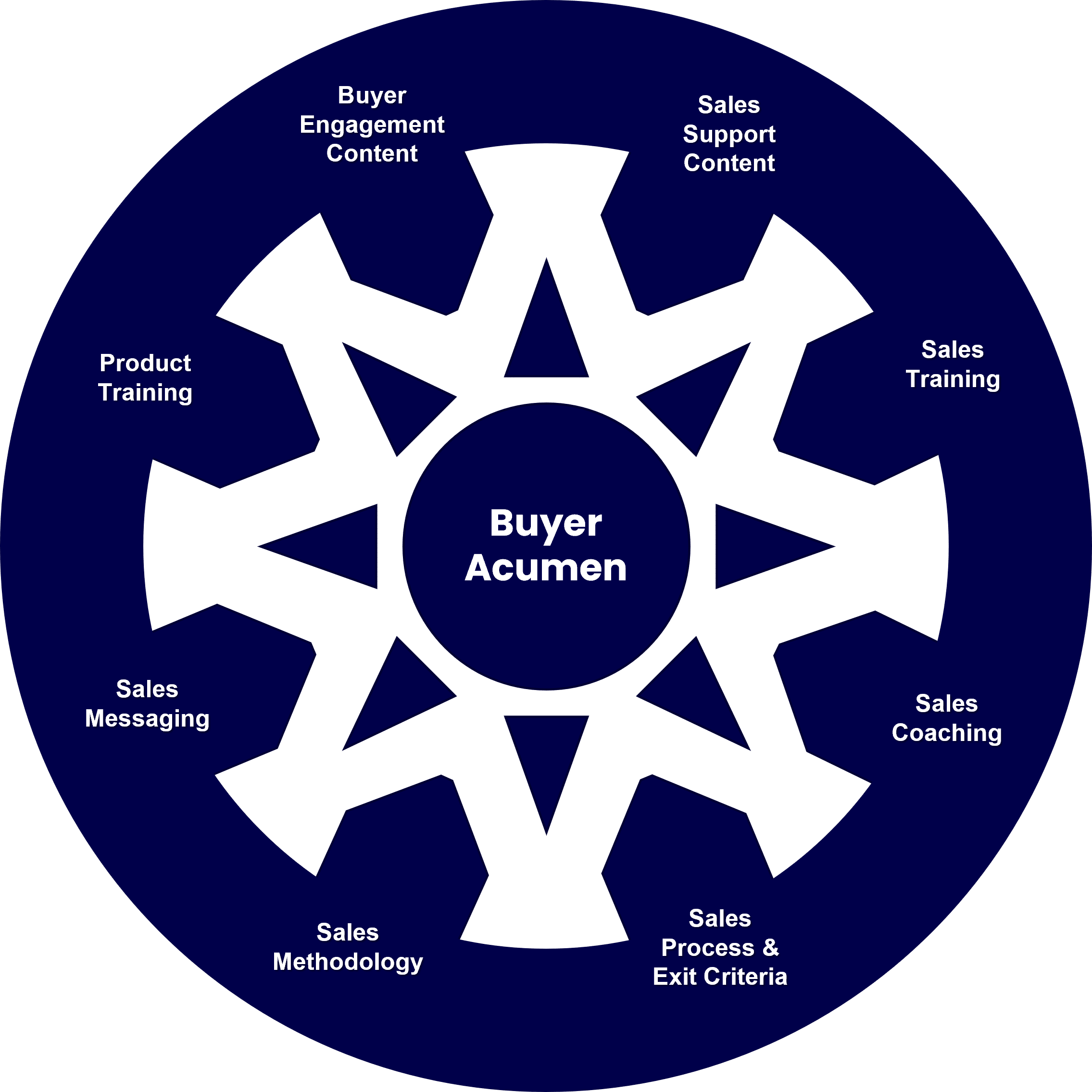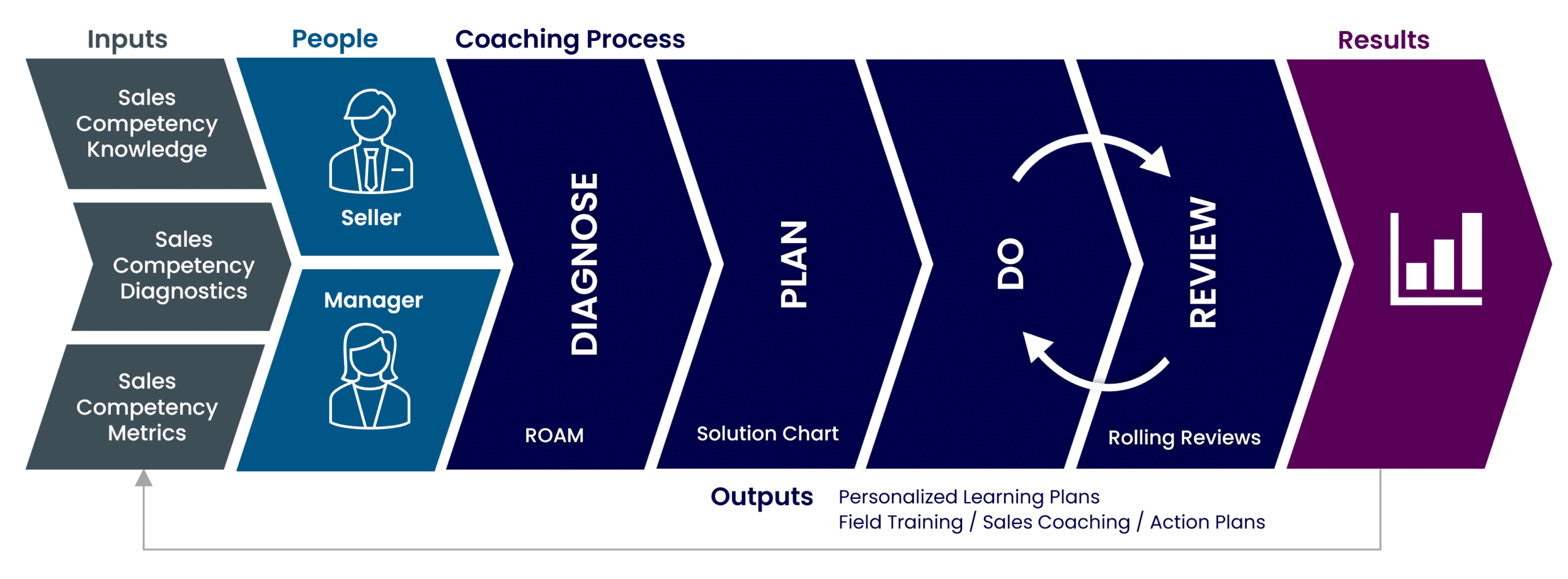As the year winds down, distributors are navigating a challenging landscape marked by various economic and market headwinds. There are a lot of conversations happening about how to achieve organic growth and manage accounts and territories more strategically to gain market share.
One thing is certain: to achieve meaningful growth now, distributors must push past conventional sales strategies and adopt innovative approaches. Data-driven account management, AI-guided selling and sales analytics are all vital, but it goes even deeper than that. Distributors also need to be willing to make profound changes to how they do things. By taking an uncompromising, almost fanatical approach to customer-centricity and transformative sales coaching, you can yield breakthrough initial results and sustainable, continuous improvement thereafter— even when the market is uncertain.
Radical Customer Centricity and Servant Selling

Servant Selling complements this approach by focusing on serving the customer selflessly and always ensuring what I call Need and Solution Alignment, or NASA. This is the confidence that your solution meets or exceeds your customers’ needs and expectations.
It’s not just about making a sale. It’s about solving problems, enabling outcomes and nurturing lasting relationships based on trust and mutual benefit. By adopting Servant Selling principles, sales teams can create a more personalized and impactful customer experience. This means acting as advisors who help buyers solve problems and achieve their goals, rather than just pushing products.
To embed Radical Customer Centricity and Servant Selling into your strategy, consider doing the following:
- Develop Deeper Buyer Acumen: Invest time in understanding your buyers’ roles, goals, challenges, opportunities and decision-making journeys. With this knowledge, you can align your sales approach with their journey, making your interactions more relevant and effective.
- Adopt a Consultative Selling Approach: Shift from a product-centric to a problem-centric and buyer-centric mindset. Focus on understanding and addressing your buyers’ specific challenges and opportunities. Act as a trusted advisor who provides valuable and relevant insights and solutions that resonate.
- Build Trust and Long-Term Relationships: Prioritize building trust and fostering long-term relationships with your customers by being authentic, transparent and reliable, and by consistently delivering on your promises.
- Tailor Your Offerings: To whatever degree is possible, customize your products and services to meet the unique needs of each customer. Practice active listening and work to engage your buyers to co-create solutions. This personalization can significantly enhance the customer experience while giving you a far deeper understanding of what truly matters, which can set you apart from competitors.
- Leverage Data and Analytics: Use data-driven insights to better manage accounts and territories. While Radical Customer Centricity emphasizes a human-centric approach, leveraging AI and sales analytics can provide valuable information to support your strategies.
Extreme Coaching and Servant Leadership

Extreme Coaching involves intensive, ongoing coaching sessions that focus on developing the skills and capabilities of the sales team. It’s about pushing the boundaries of traditional coaching to create a coaching culture and an ongoing cadence of continuous improvement to ensure that every team member reaches their full potential.
This approach requires a structured, formal process where sales managers act as facilitators, empowering and enabling their reps. True sales coaching is a developmental process that involves partnering with reps to improve performance, not just providing feedback.
Key elements of effective Extreme Coaching include:
- Senior Leadership and Top-Down Commitment: The success of Extreme Coaching hinges on the commitment from senior leadership. Leaders must prioritize coaching, allocate time for it, remove barriers that hamper it and integrate it into the organization’s culture. This top-down commitment ensures that coaching is valued and practiced consistently across the team.
- Aligned, Formal Coaching Methodology: Select and Implement a formal coaching methodology that is proven to work with sales teams. This methodology should be aligned with the organization’s goals and tailored to the unique needs of the sales force. A structured approach ensures consistency and effectiveness in coaching practices.
- Data-Driven Approach: Use reports, metrics and analytics to determine where to spend valuable coaching time for the greatest impact. By leveraging data, sales managers can identify high-impact areas, track progress and make informed decisions to optimize coaching efforts.
- Personalized Coaching Plans: Tailor coaching to the individual needs of each sales rep, with an eye on closing identified competency gaps. Use data and analytics to understand their strengths and areas for improvement, identify skill gaps and create targeted coaching plans.
- Incremental Improvements: Remember that you can only eat an elephant one bite at a time. Focus on small, manageable steps to achieve long-term success and break down coaching into incremental improvements that build over time. This approach helps reps develop their skills gradually and sustainably. (Read more here.)
- Consistent and Ongoing Coaching: Make coaching a continuous process rather than a one-time event. Regular, ongoing coaching sessions help reinforce learning and ensure that reps are consistently improving their performance.
- Empowerment and Facilitation: Sales managers should act as facilitators, providing the training, coaching, resources, tools and support that reps need to succeed. Empower your team by giving them the autonomy to make decisions and take ownership of their development. I like to say that the reps must own their development, and the managers become their guide, like a Sherpa.
- Performance Management: To ensure the effectiveness of coaching, it must be measured and integrated in performance management systems. Track progress, provide feedback and adjust coaching strategies based on performance data. This accountability helps maintain focus and drive continuous improvement. Just as reps are held accountable to use what they’ve been trained or coached on, managers must be held accountable for coaching effectively and consistently.
Servant Leadership plays a crucial role in this process. By fostering a supportive and empowering environment, leaders can inspire their teams to achieve higher levels of performance. Servant Leaders prioritize the growth and well-being of their team members, creating a culture of trust and collaboration. This leadership style involves leading by example, being transparent and consistently demonstrating a commitment to the team’s success. It also fosters psychological safety, which has been proven as a key ingredient for developing top-performing teams.
By combining Extreme Coaching with Servant Leadership, distributors can transform their sales teams, driving exceptional performance and achieving sustainable growth. This approach not only enhances individual rep performance but also builds a cohesive, high-performing team that can navigate the challenges of today’s market.
The Combined Power of Customer Centricity + Coaching
The true power of these approaches lies in their combined effect when they are both employed. One focuses on the most important external resource: your buyers and customers. The other focuses on the most important internal resource: your employees. Radical Customer Centricity with Servant Selling and Extreme Coaching with Servant Leadership complement each other, creating a holistic strategy that drives sales growth and customer satisfaction.
By integrating these approaches, distributors can create a cohesive strategy that aligns their sales efforts with customer needs and team development. This combined effect leads to a more agile, responsive, and effective sales organization.
For example, a step-by-step guide for integrating these strategies might include:
- Develop Deeper Buyer Acumen: Invest time in understanding your buyers’ roles, goals, challenges, opportunities and decision-making journeys. With this knowledge, you can align your sales approach with their journey, making your interactions more relevant and effective.
- Adopt a Consultative Selling Approach: Shift from a product-centric to a problem-centric and buyer-centric mindset. Focus on understanding and addressing your buyers’ specific challenges and opportunities. Act as a trusted advisor who provides valuable and relevant insights and solutions that resonate.
- Build Trust and Long-Term Relationships: Prioritize building trust and fostering long-term relationships with your customers by being authentic, transparent and reliable, and by consistently delivering on your promises.
- Tailor Your Offerings: To whatever degree is possible, customize your products and services to meet the unique needs of each customer. Practice active listening and work to engage your buyers to co-create solutions. This personalization can significantly enhance the customer experience while giving you a far deeper understanding of what truly matters, which can set you apart from competitors.
- Leverage Data and Analytics: Use data-driven insights to better manage accounts and territories. While Radical Customer Centricity emphasizes a human-centric approach, leveraging AI and sales analytics can provide valuable information to support your strategies.
Closing Thoughts
Combining Radical Customer Centricity with Servant Selling and Extreme Coaching with Servant Leadership can transform your sales strategy and drive significant growth.
Are there other things to consider and get right? Of course there are. But the impact of these strategies, done to a high level (I chose “radical” and “extreme” purposefully), is exceptional. By adopting these approaches, CEOs and senior sales leaders can create a more customer-focused, motivated and effective sales team. Embrace these strategies to stay competitive and achieve sustainable growth in the distribution industry— headwinds be damned.
Additional Reading/Resources
For more of my thoughts on sales coaching, check out these articles:
- So, You Want to Train Your Sales Managers to Coach – Now What?
- How That Advice About Eating Elephants Can Make You a Better sales Coach
- Your Sales Managers Think They’re Coaching, But They’re Probably Not
- 3 Steps Account Managers Can Take to Grow Their Territories Faster
I also suggest taking these online courses in Sales Coaching Excellence and Modern Sales Foundations.
Mike Kunkle is an internationally recognized expert on sales enablement, sales effectiveness, sales training, sales coaching, sales management, and sales transformations.
He’s spent over 30 years helping companies drive dramatic revenue growth through best-in-class enablement strategies and proven effective sales systems.
Mike is the founder of Transforming Sales Results, LLC where he designs sales training, delivers workshops, and helps clients improve sales results through a variety of sales effectiveness practices and advisory services.
He collaborated to develop SPARXiQ’s Modern Sales Foundations™ curriculum and authored their Sales Coaching Excellence™ and Sales Management Foundations™ courses.
Mike's book, The Building Blocks of Sales Enablement, is available on Amazon, with others coming soon in 2026, starting with The CoNavigator Method for B2B Selling.

